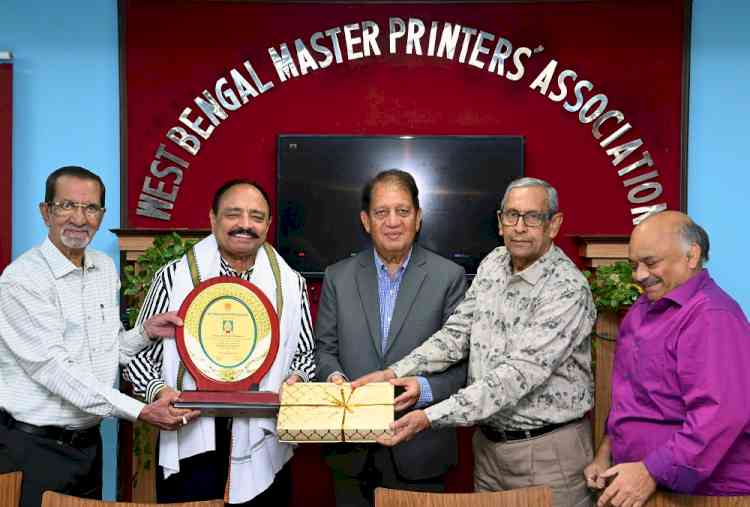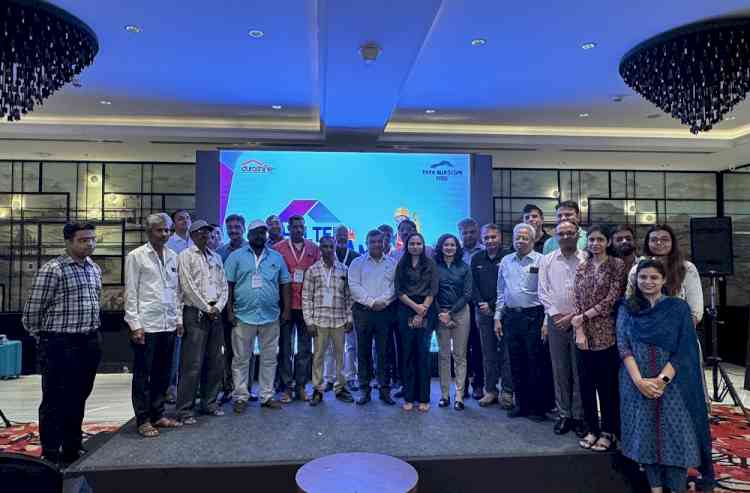UPASI and China Tea Marketing Association join hands to promote sustainability in the Tea sector
Author(s): City Air Newsphoto: city air news Chandigarh, September 22, 2016:- The United Planters Association of Southern India (UPASI) and China Tea Marketing Association (CTMA) signed a first everMemorandum of Understanding (MoU) topromote...


photo: city air news
Chandigarh, September 22, 2016:- The United Planters Association of Southern India (UPASI) and China Tea Marketing Association (CTMA) signed a first everMemorandum of Understanding (MoU) topromote sustainable tea production and consumption. The aim of the agreement is to incrementally achieve relevant UN mandated Sustainable Development Goals (SDGs) while building an inclusive, sustainable and resilient future for tea industry. The MoU was signed with the support of the Indonesian Tea Authority and stakeholders. Global sustainability organization Solidaridadwould provide technical and financial support for the implementation of the MoU.
Tea is the most popular beverage in the world after water. The tea sector has exceptional importance for the rural economy of producing countries, and is a crucial contributor to the achievement of internationally agreed upon Sustainable Development Goals (SDGs), in particular with respect to poverty eradication. However, with the constant fall in the prices and quality aspects of teasbeing consumed and the challenges that such a situation poses for the sustainability of the industry,this calls for a common coordinated approach of the world’s biggest producers and consumers of black and green tea.
The MoU signed today would focus on the following:
1. Developinga mutually acceptable framework for tea sustainability in Asia based on the new SDGs, conservation of eco-systems and product safety
2. Developinga common platform for consultations with stakeholders including governments seeking understanding with regard to the structural conditions in international markets and long-term trends in production and consumption that balance supply and demand, and result in prices that are fair, both to consumers and to producers
3. Developing joint campaigns to increase consumption of high quality green and black tea in global markets enhancing consumer satisfaction and benefits to producers
4. Conduct joint research and development in tea matters. Further disseminate and exchange economic, technical and scientific information, statistics and studies.
The initiatives and improvements discussed during the convention received broad support from leading figures in tea sustainability.
N. Dharamaraj,President of UPASI, shared that, “Both UPASI and CTMA considers the MoU as a first step towards greater regional cooperation between Indian and Chinese tea industries, whichproduce and consume the highest volume of tea in the world. Both parties will support each other in technological innovation with the aim of expanding the worldwide consumer base for high quality tea”.
Wang Qing, Executive Vice Chairman of CTMA, China,stated “Close regional cooperation on tea matters within Asia, including international trade, can foster an economically diversified global tea sector. It would further enhance the economic and social development of tea producing countries, the development of tea production and consumption, and improve business relations between tea exporting and importing countries”.
Shu Xuechang, the Proprietor of Henan Jiuhuashan Tea Co. Ltd, Deputy Director of International Exchanges and Cooperation Committee of CTMA and an executive member of the council of CTMA. Shu spoke on China’s approach to sustainability and changing tea consuming habits.
MinisterMusdhalifahMachmud, the Deputy Minister of Food and Agriculture, Republic of Indonesia attending the India International Tea Convention shared that,“Indonesia is amongst the fastest growing tea markets in the world and yet Indonesian tea producers, particularly smallholders, are struggling to remain competitive in the market. Indonesian tea industry is making every endeavour to provide high quality tea to Indonesian consumers including development of a national sustainability label ‘TehLestari’. She welcomed the collaboration of the tea industry in Asia and mentioned that the Indonesian tea sector would host the next meeting of the platform”.
Nico Roozen, Executive Director of Solidaridad Network,stressed the importance of rewarding a high quality tea with appropriate prices.The Western consumer pays 32 times more for a litre of coke than for a litre of tea. The cheap tea bags or bottled tea which dominate the Western markets may have a sustainability seal on the packs, but they don’t support or reward tea producers to make continuous improvements. A sustainability label is no longer a product differentiator. So – like the coffee sector – we need to work towards a market that is increasingly characterised by price differentiation based on origin and high quality.
A working group has been formed comprising of UPASI, CTMA and Indonesian Tea Traders Association to develop clear road map and set milestones in order to achieve the vision set in the MoU. Solidaridad would be co-funding the initiative and would provide technical support.

 cityairnews
cityairnews 
















